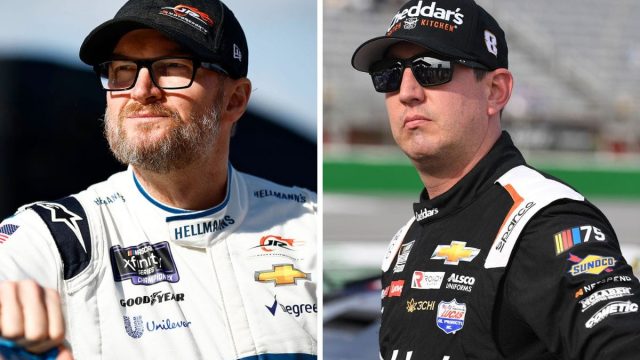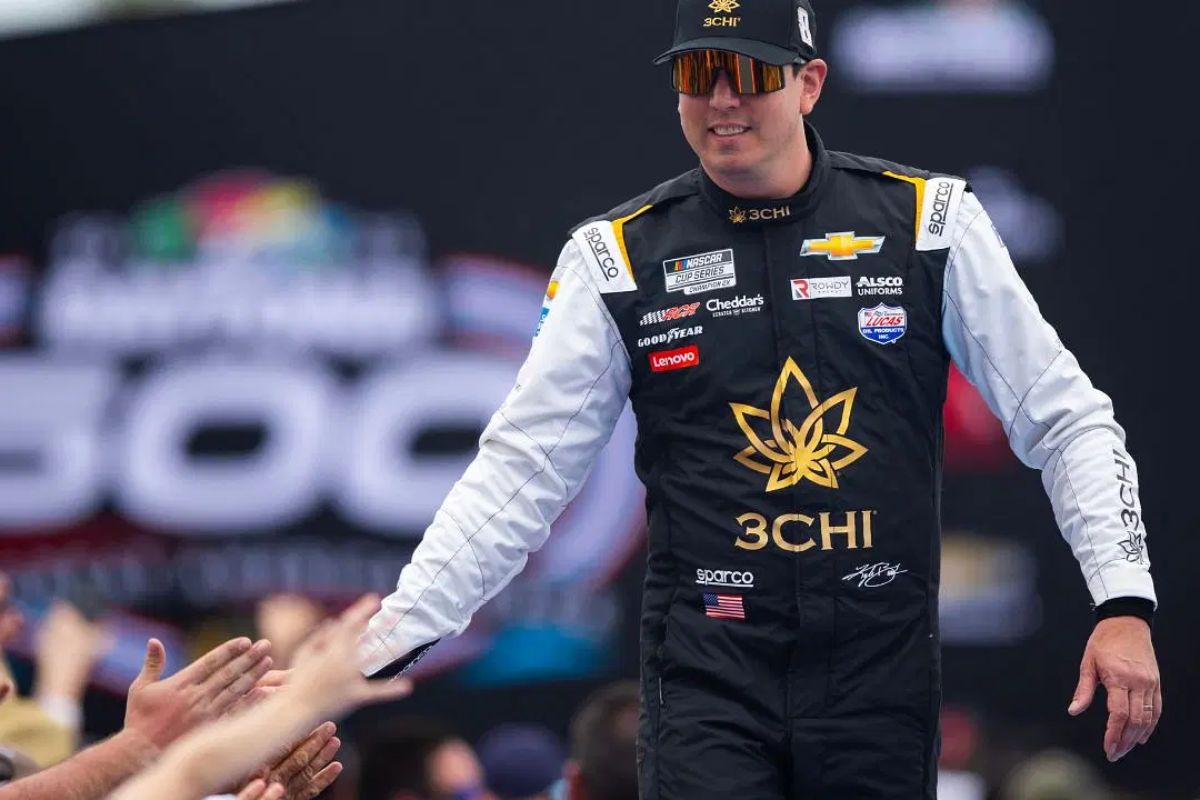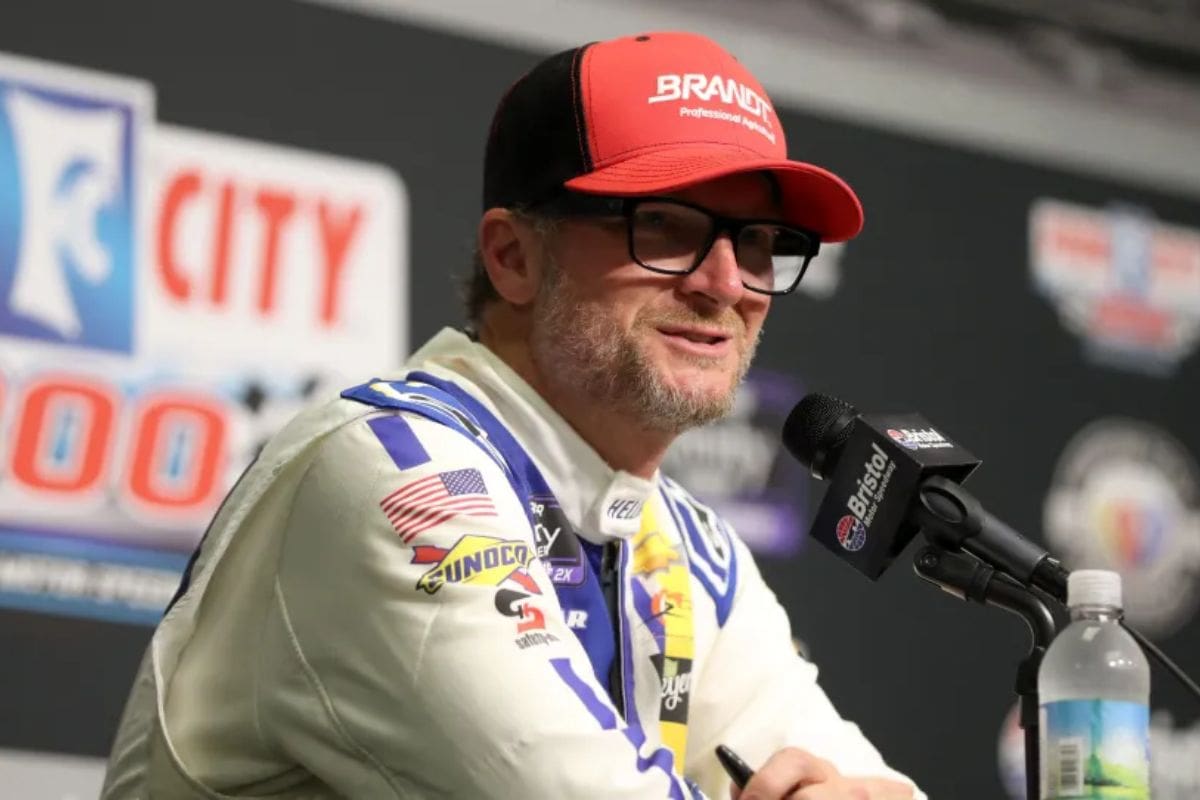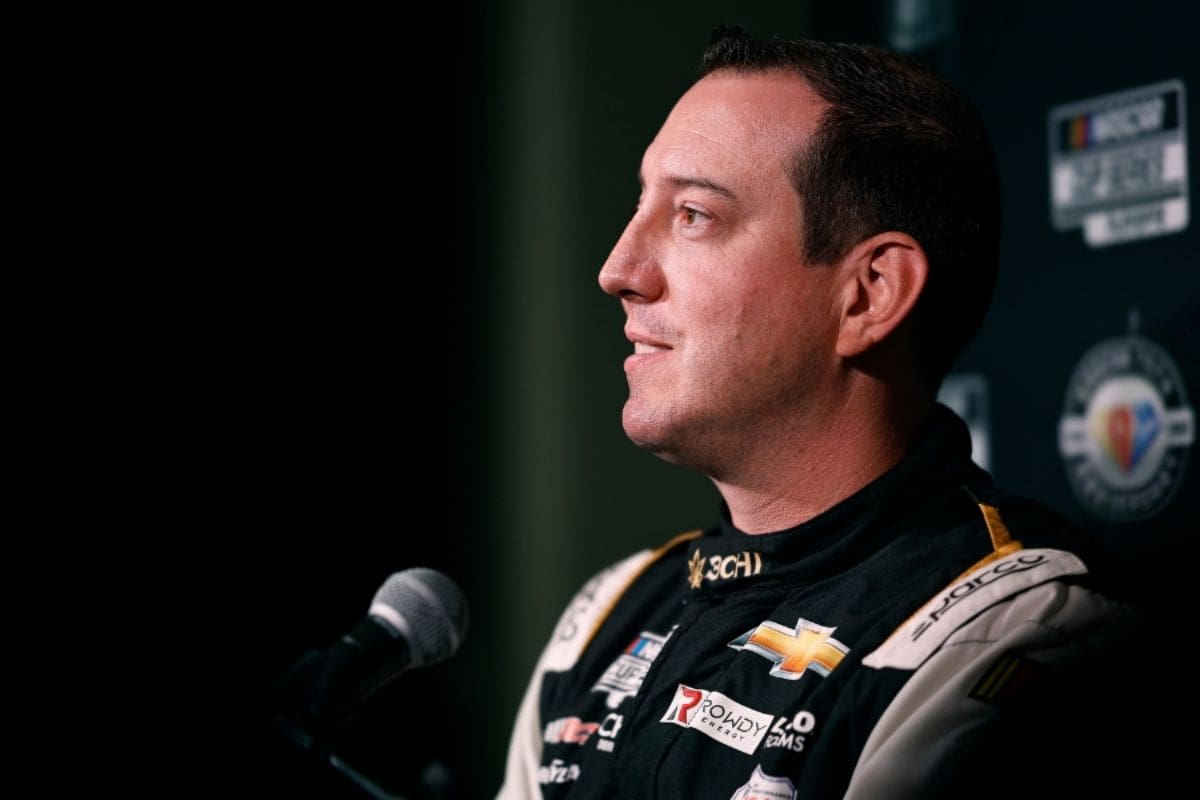Dale Jr. Labels Kyle Busch Sensitive Guy: Dale Earnhardt Jr.‘s recent characterization of Kyle Busch as a “sensitive guy” following the latter’s devastating loss at Darlington raises intriguing questions about the emotional landscape of NASCAR drivers. This incident mirrors Busch’s intense competitive nature and demonstrates the broader implications for Richard Childress Racing as they grapple with playoff qualifications. The intersection of mental resilience and performance under stress invites a deeper exploration of how such emotional responses can shape a driver’s path. What does this mean for Busch’s future and RCR’s playoff strategy moving forward?
Key Highlights
- Dale Earnhardt Jr. commented on Kyle Busch’s emotional response post-Darlington, describing him as a “sensitive guy” after missing the playoffs.
- Busch’s runner-up finish at Darlington marked his first playoff miss since 2012, intensifying the disappointment.
- The commentary from Earnhardt sparked discussion about Busch’s demeanor during high-pressure moments, raising questions about his mental state.
- Earnhardt defended his remarks amidst backlash, emphasizing the emotional toll racing outcomes have on drivers like Busch.
- Busch’s playoff miss significantly impacts Richard Childress Racing’s postseason strategy, as highlighted by his recent performance struggles.
Kyle Busch’s Playoff Miss and Darlington Heartbreak
Kyle Busch’s performance at Darlington was a reminder of the thin margins that define success in NASCAR. Finishing runner-up under the bright lights of this historic track would typically evoke jubilation among fans of the #8 team. However, the context of this race transformed what should have been a celebratory moment into a crushing disappointment.
This marks a noteworthy shift in Busch’s career path; for the initial time since 2012, he finds himself on the sidelines during the playoffs, an inconceivable reality for a driver of his caliber.
The stakes were monumental at Darlington, as Busch entered the race aware that every position mattered in the playoff landscape. His performance was commendable, yet it highlighted the heartbreak of a missed opportunity. The runner-up finish, while respectable, was laden with the weight of “what-ifs.”
This missed playoff berth not only affects Busch but also reverberates through Richard Childress Racing (RCR), as the team had pinned their hopes on his veteran experience to navigate the challenges of the postseason.
The implications extend beyond a single race; they signal a potential shift in Busch’s career and the future direction of RCR. As he reflects on this crucial moment, the need for adaptation and resilience becomes paramount in a sport where every fraction of a second can dictate destiny.
Dale Earnhardt Jr. and Dirty Mo Media’s Commentary
The commentary from Dale Earnhardt Jr. and Dirty Mo Media has stirred considerable discussion in the aftermath of Kyle Busch‘s dramatic finish at Darlington. Their analysis, particularly highlighting Busch’s laid-back demeanor during the critical moments, has drawn both intrigue and criticism. The comparison of Busch sipping water while watching Chase Briscoe’s celebratory burnout raises questions about his mindset in high-stakes situations.
In the wake of Busch’s playoff miss, Dirty Mo Media’s social media post succinctly captured the essence of the moment. By stating, “Defeat for Kyle Busch. He does not qualify for the Playoffs,” they acknowledged the importance of the situation while also igniting a dialogue about Busch’s emotional responses. Busch’s quick retort—“Hate post?”—illustrates his sensitivity to public perception, which Earnhardt Jr. characterized as indicative of a “sensitive guy” persona.
Defeat for Kyle Busch
He does not qualify for the Playoffs pic.twitter.com/27GBeNlnUu
— Dirty Mo Media (@DirtyMoMedia) September 2, 2024
This exchange exemplifies the fine line between commentary and critique in the domain of sports media. While Andrew Curland, co-host of Earnhardt’s show, aimed to clarify that no disrespect was intended, the nature of social media can amplify misunderstandings.
The incident highlights the stress athletes face not only on the track but also in the court of public opinion. As fans and analysts dissect these moments, it becomes evident that the interplay between performance, emotion, and media representation remains a potent force in shaping narratives within NASCAR.
Dale Earnhardt Jr.’s Defense and Commentary
Amid the ongoing discourse surrounding Kyle Busch’s emotional response to his playoff miss, Dale Earnhardt Jr. has taken a moment to defend the intentions behind the commentary from his team on Dirty Mo Media.
In a recent episode of the Dale Jr. Download, Earnhardt addressed the backlash directed at his team from Busch’s fans, highlighting the intense emotions that accompany racing. He acknowledged the weight of the situation, recognizing that both victory and defeat carry considerable implications for the drivers involved.
However, Earnhardt also critiqued Busch’s reaction, suggesting it was disproportionate and unnecessary. He characterized Busch as a “sensitive guy” and noted that his defensiveness often stems from a long-standing perception of being the “black sheep” within the sport.
“Very sensitive moment. Yeah, a sensitive guy, very defensive guy. He’s defensive, right? He’s always I guess he’s spent most of his career sort of feeling like kind of Black Sheep almost like kind of you (Curland), just kind of scratching old wound there. but sorry I didn’t mean I know you didn’t intend anything, unfortunately, it’s Kyle who’s in that position but you were pointing out there two sides to this.” – jr
Earnhardt emphasized that the commentary was not intended as an attack but rather a reflection of the broader context in which these emotions play out. By framing the discourse in this manner, he invited a deeper understanding of the complexities surrounding competitive racing, where personal and professional stakes intertwine.
Chase Briscoe’s Victory and Its Significance
Celebrating a significant milestone, Chase Briscoe’s recent victory at Darlington not only solidifies his place in the playoffs but also represents a pivotal moment for Stewart-Haas Racing (SHR) as the team navigates its final season. This win embodies not just personal achievement for Briscoe but also a collective success for the entire SHR organization, which is poised to conclude its chapter in NASCAR amidst a competitive landscape.
Briscoe’s words in the post-race interview resonate deeply: “For all 320 employees, everybody, to be able to race for a championship in their final year, man, unbelievable.” This sentiment highlights the emotional weight of the moment, as the team rallies around a shared goal of excellence.
In the context of sports, particularly NASCAR, the unpredictability and drama of competition emphasize the significance of such victories. Dale Earnhardt Jr. aptly remarked on the nature of sports, emphasizing that heartbreaks often pave the way for uplifting narratives.
“As unfortunate for Kyle, that too is what is great about sports. You know if we didn’t have those almost or heartbreaking moments, I mean you’ve got to have all ranges of the emotion for this to be great.” – jr
As Briscoe navigates the playoffs, his win becomes a rallying point, reinvigorating a team that has faced the challenges of impending change. The victory not only serves as a reflection of Briscoe’s skill but also illustrates SHR’s resilience against adversity.
Kyle Busch’s Recent Performance and Future Outlook
Chase Briscoe’s recent triumph at Darlington serves as a backdrop to Kyle Busch’s fluctuating performance this season, highlighting the contrasting trajectories of two prominent drivers in NASCAR. Busch, once a stalwart of consistency, has faced challenges that have seen him record five DNFs and only five top-five finishes in 26 races. This drop-off is striking, especially given his historical skill within the Cup Series.
However, recent races indicate a potential resurgence. Following a rough start, Busch has shown signs of recovery, finishing 12th at Richmond, 4th at Michigan, and securing back-to-back runner-up finishes at Daytona and Darlington. These results hint at a reinvigorated competitive edge, leaving fans and analysts similarly to ponder what changes have been implemented at Richard Childress Racing (RCR).
Dale Earnhardt Jr. expressed his bewilderment over the newfound speed, suggesting that RCR may have unearthed valuable insights about the new car’s dynamics.
“Apparently over the Winter Olympic break, they dug up a pot of gold. I don’t know what they dug up out ground.I don’t know how it happens with this car. I know how it happens with the old car cause the teams made most of the parts right so you could make some new updates, some new trick part right but with this car. I don’t know everybody has the same. So I don’t know how they’re finding any speed right but they did.” – jr
While Busch’s chances of contending for the championship may be slim, the next ten races present a critical opportunity for him to capitalize on this momentum. A victory would not only enhance his confidence but also set a positive tone heading into the next season.
The question remains: can Kyle Busch harness this revival to secure a win? As the season draws to a close, all eyes will be on him, enthusiastic to see if he can convert potential into performance.
News in Brief: Dale Jr. Labels Kyle Busch Sensitive Guy
The emotional aftermath of Kyle Busch’s loss at Darlington exemplifies the profound psychological challenges faced by NASCAR drivers in high-stakes environments. Dale Earnhardt Jr.’s characterization of Busch as a “sensitive guy” highlights the intersection of competitive fervor and emotional vulnerability within the sport. This incident not only emphasizes the ramifications of individual performance on team strategies, specifically for Richard Childress Racing, but also serves as a reminder of the human elements that underpin athletic competition and its strains.
ALSO READ: Dale Earnhardt Jr. Confronts the Hard Truth: The Costs of Leaving NBC for Family Time



